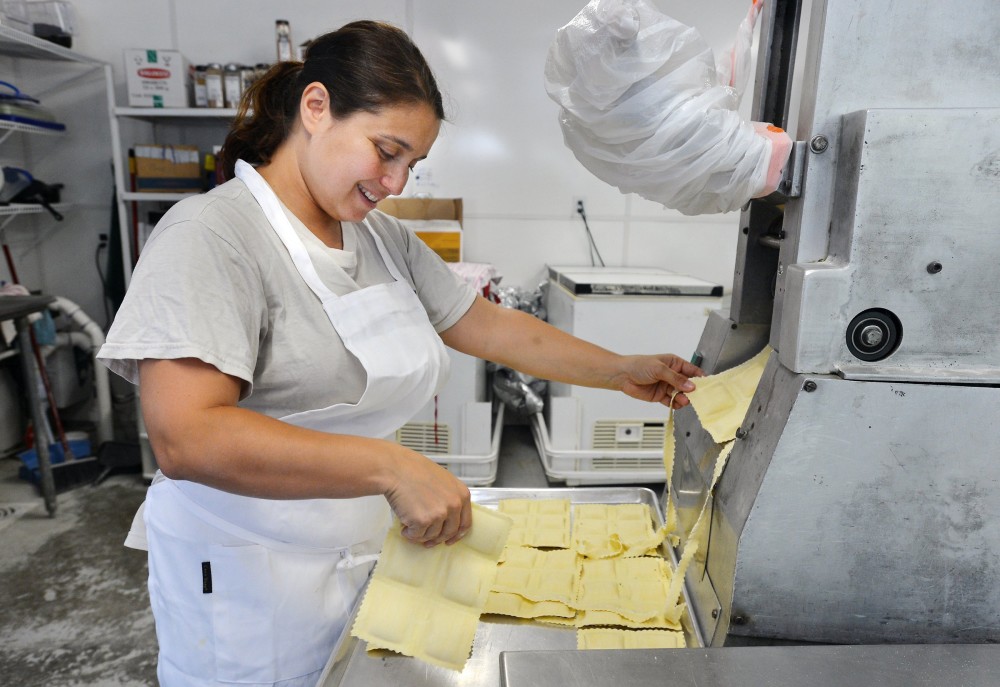By Teresa F. Lindeman
Pittsburgh Post-Gazette.
If the buy-local food trend is going to take over a meaningful portion of the shelf space in Pittsburgh pantries and refrigerators, a better route has to be developed to help entrepreneurs scale up production of that great BBQ sauce or tasty cookie.
A new venture called Innovation Kitchens of Pittsburgh is being launched with the idea that it will connect the region’s food growing and processing resources as well as assist small businesses in developing a business strategy, identifying financing and marketing their product.
“They do this in the tech space all the time with business accelerators,” said Joe Bute, president of Hollymead Capital Partners, a Gibsonia organization created in 2011 with the goal of helping create sustainable enterprises in low- and moderate-income communities.
Mr. Bute is partnering with Denise DeSimone, chairman and founder of C-leveled, a business support services firm in Bloomfield, to create a one-stop shop for people who know their jam sells but need help filling an order from a grocery store chain.
“We’re going to get to know everybody in the food space,” said Mr. Bute, including on that list farmers, retailers, commercial kitchens, distributors and other players involved in getting sustenance to the region.
Both Hollymead and C-leveled have had some experience in the local food space.
A few years ago, Hollymead helped develop the business plan for the Republic Food Enterprise Center, a former 50,000-square-foot-plus grocery distribution center converted by the Fayette County Community Action Agency Inc. as a food processing facility meant to create jobs in a struggling area.
C-Leveled works with a number of food entrepreneurs each year, although that isn’t the firm’s main focus, said Ms. DeSimone.
Its services include analyzing the potential market for a product. “We’re going to look at your business as a whole,” she said. “Can you sell this at the right price?”
An example in Wisconsin
Mr. Bute and Ms. DeSimone are drawing inspiration from the Wisconsin Innovation Kitchen, a small batch specialist that makes custom recipe products.
A culinary staff in Mineral Point, Wis., handles the processing, including sanitizing equipment before moving on to the next product. A business support operation works with entrepreneurs to create recipe plans, develop cost estimates and provide marketing and sales support.
Rick Terrien, founder and CEO of the business support piece known as Innovation Kitchens LLC, said the small batch operation frees up entrepreneurs to spend time on marketing and sales.
It fills a need in a business where many co-packers have minimum order standards that might be too much for a start-up. “You can’t find a small, artisan, batch food processing operation,” Mr. Terrien said.
The Wisconsin operation doesn’t have a financing piece. The Pittsburgh vision is to develop an independent investment company that would back promising food businesses.
A business coming to Innovation Kitchens of Pittsburgh could pick and choose what services to use.
“This is a virtual business accelerator and agnostic about what assets we leverage for a company,” said Mr. Bute.
Stimulating production
Jim Stark, CEO of the Fayette County Community Action Corp., would welcome the venture. The Republic Food Enterprise Center has been steadily picking up work, he said, but keeping jobs at the site year-round has been a challenge.
Anything that helps create an infrastructure helping small businesses grow could help the Republic, in his view. “That would help stimulate food production in our area,” Mr. Stark said.
The center is trying to set up hummus production for Squirrel Hill-based Greek Gourmet Marketplace, but Mr. Stark is a concerned state budget issues could delay a decision on an application to the state Department of Community and Economic Development for about $100,000 to help buy special equipment to do the work. The application seeks federal money that the state can allot as it chooses.
The hummus is already sold into the region’s Whole Foods Markets and Giant Eagle Market District stores, but the equipment would make it easier to make larger quantities as well as to package the product in a way that gives it a longer shelf-life. That would also free up owner Mike Smalis to spend more time marketing his products.
Mr. Stark said a year-round contract to make hummus could create between 10 and 15 jobs, and other entrepreneurs are also interested in using the equipment if it comes through.
Mr. Bute said the situation is an example of why Innovation Kitchens of Pittsburgh is needed. “Republic is living from grant to grant. We need to put in enough profitable contract manufacturing business in places like this to get them to positive cash flow and financial stability or we lose the asset,” he said.














































































































































































































































































































































































